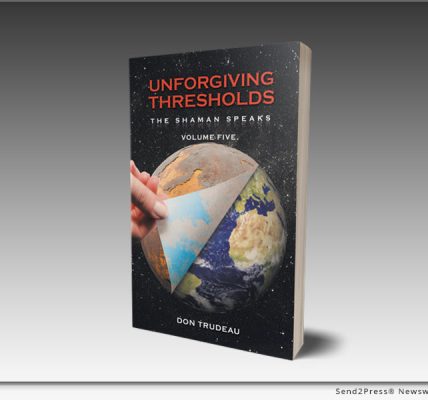‘Come meet us in Dubai’: the new offshoring of grand corruption
So-called professional enablers of grand corruption are increasing service provision out of jurisdictions where they can act without similar restraints. WaitForLight / Shutterstock
During an interview one of us (Ricardo Soares de Oliveira) carried out in 2017, an African high net-worth individual said he was told by an executive whose business had long served him out of London: “Come meet us in Dubai”. This is part of a large but still misunderstood shift.
In response to the hardening of rules for foreign money of dubious origins in traditional financial centres, sensitive business has been moving toward new, more permissive jurisdictions. This offshoring of services is giving corrupt strategies a new lease of life, while also making the fightback more difficult.
For every corrupt dealing that materialises as legitimate wealth, a trail of service provision is indispensable. Bankers, lawyers, real estate executives, accountants, management consultants and PR agencies have acted as facilitators in western financial centres.
Western governments have long indulged kleptocracy, a system where business success and political power are inextricably entwined. They have done so by condoning lax law enforcement and promoting deregulation, often through risible mechanisms of professional self-regulation.
But in recent years, data leaks and brave championship of reform by politicians, as well as the work of civil society organisations, investigative journalists and academics, have shed light on the role of these so-called professional enablers.
In June 2024, a month before becoming British foreign secretary, David Lammy promised to take aim at professionals who enable corruption through London and the UK’s overseas territories. This, he noted, included the “finest bankers, lawyers, estate agents and accountants that money could buy”.
Lammy’s comments give the impression that the era of risk-free facilitation of corrupt behaviour is at an end. But this optimism is, at least for now, misplaced.
The shift is largely in political discourse and media scrutiny. Enforcement seriously lags everywhere and is now in reverse gear in the US. Professional enablers still face no real sanction for engaging in such practices.
At the same time, many professionals are reacting to a more tightly regulated ecosystem in western jurisdictions by engaging in so-called “jurisdictional arbitrage”. There is evidence that they are increasing service provision out of jurisdictions where they can act without similar restraints.
Jurisdictional arbitrage
Almost all cases of the professional enabling we have studied involve service provision in western hubs and “new” global financial centres.
The professional network around Gulnara Karimova, the daughter of the former president of Uzbekistan, Islam Karimov, was dubbed “the office” by Swiss prosecutors. Karimova was jailed in 2014 for taking bribes for access to the country’s market.
The criminal investigation into her involved 12 jurisdictions, including the UK, US and Uzbekistan as well as the United Arab Emirates (UAE) and Hong Kong.
Isabel dos Santos, who is Africa’s richest woman and the daughter of former Angolan president José Eduardo dos Santos, also held a maze of global interests. These interests, as in the case of Karimova, spanned western jurisdictions and Asian financial centres such as Dubai, Singapore and Hong Kong.
Alternative jurisdictions all offer very similar conditions. They are already well-connected, world-class financial centres that are attractive to international business executives.
Their governments have created regulatory, fiscal and secrecy conditions, sometimes explicitly undercutting older centres such as Switzerland and London. In the latest edition of the Global Financial Centers index, which ranks the competitiveness of financial centres, Dubai rose four places to go above Dublin, Geneva and Paris.
Crucially, they are also mostly authoritarian states where there is no media or civil society pressure regarding business activities. Even the intermittent sort of scrutiny one sees in western financial centres is absent there.
Much activity in these financial centres is legal and based on their legitimate competitive advantages. Business interests are also attracted by their vast capital pools. But they are proving to be especially appealing for the sort of business that can no longer flock to other jurisdictions.
This is the case with servicing clients from states under sanctions such as Russia or Iran. It also applies to regions like Africa and central Asia with high compliance barriers whose high net-worth individuals and firms can no longer get easy access to OECD jurisdictions.
Researchers at the University of Sussex have shown a major shift in dirty money networks away from the west and towards what they call a “Dubai-Kong axis”.
There is no exact portrait of the magnitude of this jurisdictional arbitrage. But our work tells us it is big. Two examples from Switzerland are commodity trading and wealth management.
These sectors have long been under-scrutinised. But they have seen regulatory tightening and greater media attention in recent years. Both have reacted the same way, by sending important parts of their business away from Switzerland.
The UAE has been dubbed the “new Swiss financial mecca”, with the Financial Times reporting in May 2025 that Swiss family offices are moving there “wholesale”. Far from downplaying the “Swiss brand”, they continue to advertise their multi-generational expertise and “old money” mystique, but from more amenable locations.
What can be done?
The many types of legal business involving professional services in these jurisdictions should not be affected. But national and international law must designate the “kleptocratic enterprise” of elites and professionals as a form of serious organised crime.
This would allow prosecutors to target professionals for working with criminal kleptocrats rather than having to prove that the particular asset handled has criminal origin. This move was made by Swiss prosecutors in the Karimova case.
It captures the reality that ill-gotten gains are layered and integrated into assets held overseas, just as enablers do for criminal gangs. It also means that the moving of the family office to Dubai will not prevent prosecution where an asset is held or registered.
Finally, governments could stimulate the market in asset recovery by making it easier for foreign governments and civil society to bring cases, with expert law firms working on a for-profit basis.
Illicit finance is always transnational, so there is no need to declare defeat just because dodgy business is on the move. However, we are entering a new stage in its global dissemination and complexity.
John Heathershaw receives funding from the Governance Integrity Anti-Corruption Evidence Programme funded by UK Aid from the UK Government for the benefits of developing countries. The views expressed are not necessarily those of the UK government’s official policies. He is affiliated with the UK Anti-Corruption Coalition.
Ricardo Soares de Oliveira receives funding from the Governance Integrity Anti-Corruption Evidence Programme funded by UK Aid from the UK Government for the benefits of developing countries. The views expressed are not necessarily those of the UK government’s official policies.



